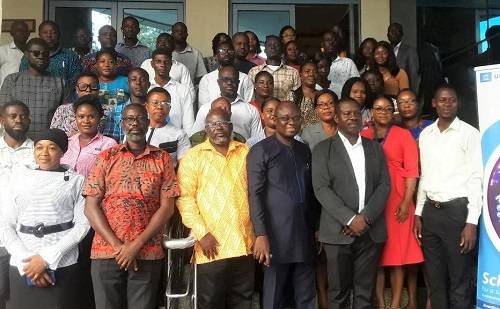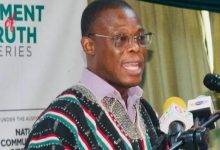
Sixty officers of the National Disaster Management Organisation (NADMO) from various municipal assemblies in the earthquake-prone areas of the Greater Accra Region have undergone a two-day Earthquake Disaster Risk Reduction (DRR) training in Accra.
The participants were from Weija Gbawe, Ashiedu Keteke, Ablekuma South, Okaikwei South, Okaikwei North, Korle Klottey and Ablekuma West Municipal assemblies.
They were taken through mitigation and prevention of earthquake disaster risk, proactive structural health monitoring before, during and after actions, Sustainable Development Goal (SDG) 11 and Sendai framework for DRR.
The training-of-trainers event that was organised by the United Nations Educational, Scientific and Cultural Organisation (UNESCO) in collaboration with the Ghana Geological Survey Authority and NADMO, aimed to increase knowledge and skills of the officers, for effective education and sensitisation of the public on earthquake disaster risk reduction.
Speaking at the programme, the Officer-in-Charge, UNESCO, Mr Prosper Nyavor, said the spate of disasters, both natural and technologically induced, had significantly increased with devastating socio-economic impacts.
He said Ghana had been experiencing an increasing spate of minor earthquakes and high tidal waves due to climate change leading to flooding in the coastal areas.
These impacts, Mr Nyavor said could be reduced through proactive measures and planning, hence UNESCO’s pre-disaster action and supports capacity building for countries to manage disasters and climate risk.
“Science and collaboration are critical in all of these, that’s why UNESCO promotes scientific exchange and collaborate efforts to establish effective early warning systems for hazards such as tsunamis, landslides, earthquakes, floods, and droughts,” he added.
Mr Nyavor said UNESCO and World Food Programme had been collaborating to support the efforts of the Government of Ghana regarding immediate or short term measures such as education, sensitisation, and raising awareness among the populace, especially the vulnerable.
“Education and sensitisation of children and the public, including evacuation drills, are essential for people to know what to do when an earthquake occurs, or an early warning is issued. This is imperative for disaster risk reduction,” he said.
Mr Nyavor said UNESCO believed that apart from providing earthquake educational materials, a sustained public education and sensitisation campaign, including earthquake evacuation drills in schools, workplaces, churches, mosques, markets, lorry parks, should be undertaken, especially for people living in high-risk zones in Ghana.
A seismologist with the Ghana Geological Survey Authority, Mr Nicholas Opoku, advocated an engineering structural change in the putting up of commercial and private buildings to reduce the extent of damage during a major shake.
BY VIVIAN ARTHUR



